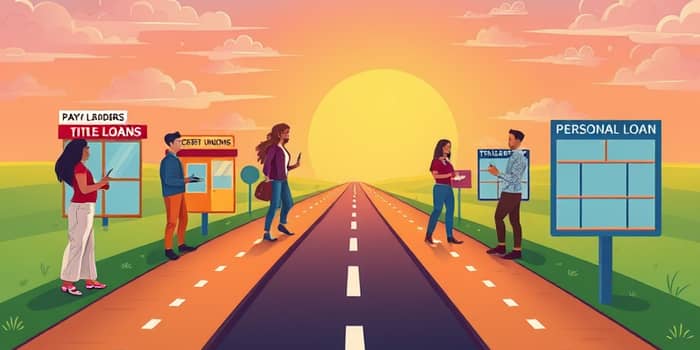
When unexpected expenses arise—medical bills, emergency repairs, or sudden travel—you may find that your credit score stands in the way of traditional borrowing. In such moments, no credit check loans can appear to be a quick fix, sidestepping the usual credit review process. However, understanding their true nature, costs, and potential pitfalls is critical to making a responsible choice. This guide explores your options, breaks down real costs, and offers strategies to safeguard your financial wellbeing.
No credit check loans are financial products that do not involve a traditional hard credit inquiry on your record. Instead of relying on credit scores, lenders focus on factors such as income, bank account status, employment history, or collateral to assess risk.
These loans can take the form of short-term advances or secured borrowing against personal assets. While avoiding a hard inquiry, applicants should be aware that a lender may still verify income and banking details, and sometimes perform a soft credit inquiry that does not affect your score.
Understanding the variety of no credit check options is essential. Below is a concise overview of the most common types:
Applications for these loans typically require proof of steady income, a valid bank account, and sometimes evidence of residence. Secured loans will need a title or collateral deposit. While many lenders claim “no credit check,” they replace credit analysis with other risk assessments, and you may face high origination fees or mandatory insurance add-ons.
Be wary of promises of guaranteed approval. Legitimate lenders will always verify basic qualifications—income, age, residency—before disbursing funds. Scammers often exploit the no-credit-check pitch to trap borrowers in exorbitant terms.
The most significant drawback of no credit check loans is the predatory interest rates they often carry. APRs can exceed 400%, and additional origination, late, and default fees compound quickly. Short repayment windows leave little margin for error, increasing the chance of rollover borrowing.
When borrowers can’t repay on schedule, they may face a vicious debt cycle risk, where successive loans and fees spiral out of control. Secured loans add the threat of losing personal property, from cars to household items pawned for cash. Regulations vary widely by state, so legality and consumer protections can differ dramatically depending on your location.
Before committing to a high-cost loan, explore these potentially more affordable and sustainable options:
When evaluating any loan offer, even those marketed as easy or instant, follow these guidelines:
To illustrate the stark differences in cost and risk, consider the following breakdown:
No credit check loans can provide fast access to cash when you’re in a bind, but they come at steep costs and serious risks. Carefully weigh each option against more traditional financing, seek professional advice, and plan for repayment to avoid a cycle of ever-increasing debt.
By understanding the true cost, exploring safer alternatives, and taking steps to strengthen your credit profile, you can navigate financial emergencies with greater confidence and security. Remember: the best borrowing decisions are informed decisions.
References













